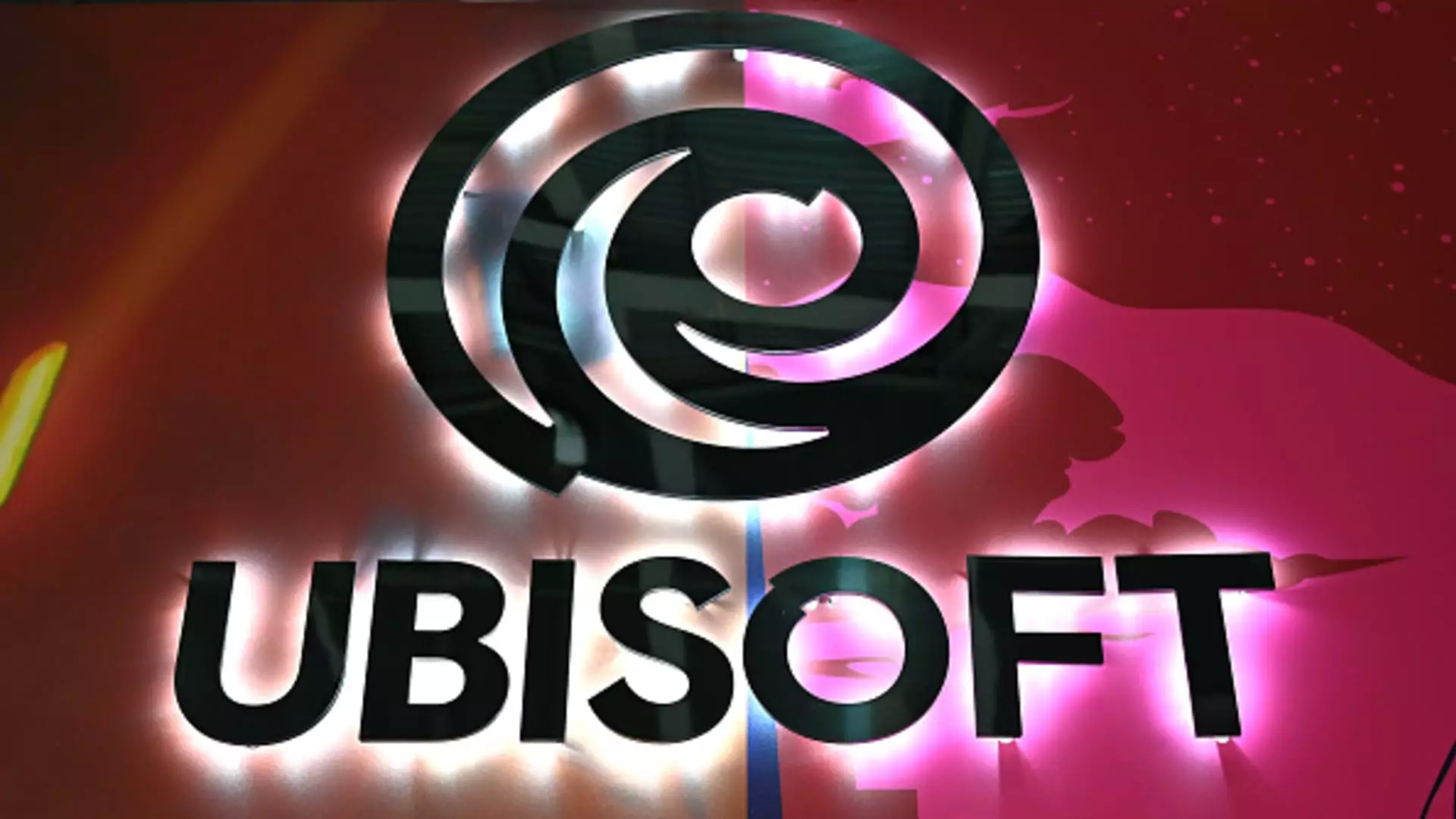In recent weeks, Ubisoft, the renowned French video game publisher behind iconic franchises like “Assassin’s Creed,” has been at the center of market speculation and investment activities. On a day when shares spiked over 30%, attention is drawn not just to the rally in stock prices but to the underlying circumstances driving investor interest. Factors contributing to this situation include the potential involvement of Tencent, a significant player in the global gaming industry, alongside the company’s founding Guillemot family. Both parties are reportedly exploring a possible buyout after the firm has seen its market value plummet by over 50% in 2023.
The substantial stock price increase—33.5% by market close after reports surfaced—contrasts sharply with the company’s broader struggles, indicating that investors remain tentative amidst an unpredictable gaming landscape. This sudden surge highlights the volatility that can arise from ongoing market speculation, especially when a company faces strategic crossroads.
Ubisoft’s predicament is further complicated by its ownership structure. Both Tencent and the Guillemot family hold minority stakes in the company and are now contemplating a strategic partnership to potentially take Ubisoft private. This discussion signifies a notable shift in the landscape of video game publishing where traditional brands may find themselves in a position to leverage private equity structures, reflecting a growing trend of consolidation within the sector.
The interested parties also must contend with Ubisoft’s recent performance reports, which have not inspired confidence among investors. The postponement of the much-anticipated “Assassin’s Creed Shadows” title has further exacerbated the concerns surrounding Ubisoft’s game pipeline. This delay, stemming from underwhelming demand for earlier offerings like “Star Wars Outlaws,” adds to apprehensions about the company’s operational management. Meanwhile, UBS has revised its booking guidance down, indicating a challenging fiscal forecast—a striking call to arms for potential buyers, signaling a ripe opportunity for interventions.
Tencent, which has carved a niche as one of the largest technology companies in China, holds around a 10% stake in Ubisoft. Known for its virtual universe leadership through titles like “Honor of Kings,” its interest in acquiring Ubisoft aligns with its broader ambitions to expand globally. Tencent’s reach into gaming investments illustrates a strategic move to gain influence over Western gaming markets.
If Tencent aligns with the Guillemot family in a potential buyout, it could signify a major shift for Ubisoft, notably toward more aggressive and diversified growth strategies that leverage Tencent’s vast resources and expertise. This partnership could facilitate a greater infusion of capital and promote innovation, potentially reversing the company’s declining fortunes.
Amid this volatility, concerns among investors center around the broader gaming industry landscape. Analysts have pointed out that the games market is facing a subdued growth projection—just 2.1% year-over-year in 2024, according to Newzoo. This stagnation follows heightened growth during the COVID-19 pandemic, during which consumers flocked to digital entertainment for solace. Now, the conversation shifts toward understanding consumer behavior, as gamers seem more inclined to spend time on established franchises rather than exploring newly released titles.
James Lockyer of Peel Hunt captures this paradigm shift, asserting that the industry is grappling with a changing consumer spending landscape. The pressures of a cost-of-living crisis are compelling gamers to tighten their wallets, ultimately affecting revenue growth and the return on investment for new developments. With gamers prioritizing time and financial resources, companies like Ubisoft face escalating pressures to innovate while also maintaining adherence to financial prudence.
Ubisoft stands at a crucial juncture, one that could redefine its operational trajectory. The consideration of a buyout by Tencent and the Guillemot family speaks to a larger need for traction amidst an increasingly challenging market. As the company navigates investor anxieties and shifting consumer behaviors, the outcome of these dialogues may significantly influence not just its future but also the landscape of the gaming industry as a whole. The prospect of enhanced strategic execution and an infusion of resources offers a glimmer of hope, but the path ahead remains acutely uncertain. In this volatile environment, time will tell if Ubisoft’s leadership can effectively pivot their strategy and reclaim optimal performance levels in an evolving marketplace.


Leave a Reply